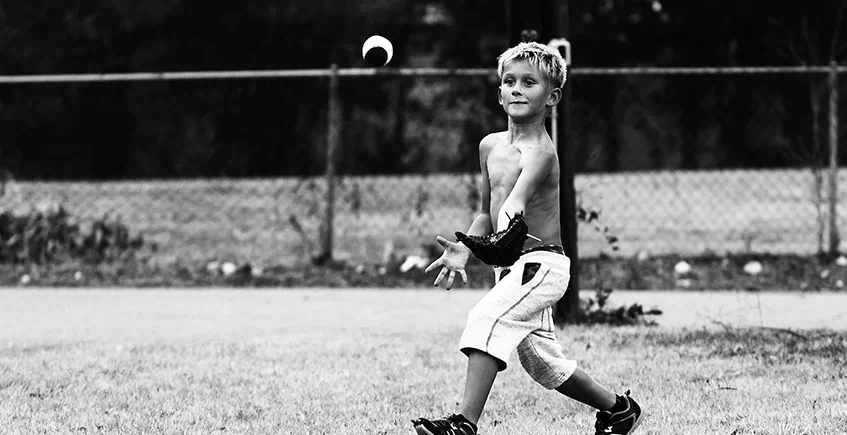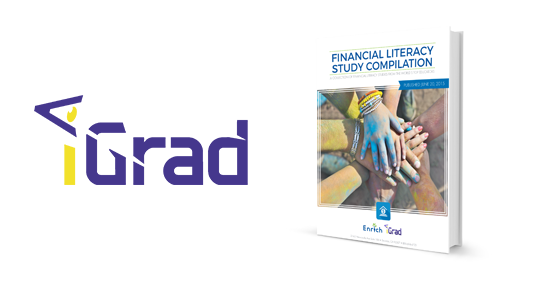The persistent rise of student debt – now, totaling upwards of $1.2 trillion among 40 million borrowers – is a serious concern for not only student and parent borrowers, but administrators and educators as well. As the cost of tuition climbs higher, so does the need to finance educational goals through federal and private lenders. While student loans present a means to a necessary end, a lack of broad financial literacy leaves borrowers with a greater potential for default in repayment, and colleges and universities with a stark decrease in student retention.
The negative implications affecting both institutions and student borrowers due to being financially unaware has sparked a rise in the need for financial literacy education. A number of colleges and universities are taking charge to give students the education necessary to make sound decisions with their money, including programs focused on student loan borrowing and repayment, budgeting, saving, investing and positive and negative financial behaviors.
Here are four universities leading the way in providing financial literacy programs to students:
University of Minnesota
Beginning in the fall of 2015, the University of Minnesota is offering students no-cost personal finance counseling as part of the One Stop Student Services program. Counselors will be made available to students through scheduled and walk-in financial wellness appointments, focused specifically on the money challenges faced by students at the University. Counselors approved to lead the student sessions have been extensively trained, with each completing 50 hours of online curriculum intended to qualify them as financial advisers.
Topics of discussion include living on a budget, minimizing debt and how to curb life expenses such as rent, food, and books. While the University of Minnesota has offered financial literacy resources to student through its online platform for some time, the addition of face-to-face meetings is meant to enhance each student’s experience and understanding of critical financial literacy issues.
University of Arkansas
Student athletes have been a major focus in the world of financial literacy due to the unique opportunities and circumstances surrounding their college years. The University of Arkansas has recently developed a financial literacy program aimed at this group of students, focusing topics around personal budgeting, credit usage, and debt minimization. The University’s student-athlete program intends to provide a foundation of financial principles that allow students to be successful before and after graduation.
Launched in the spring of 2015, University of Arkansas faculty and staff with the Razorback Business Office partnered with a local credit counselor to offer interactive finance-focused activities for student athletes, including Credit Card Jeopardy as well as presentations on identity theft and the basics of good financial habits. As the program progresses, first and second year students will have an opportunity to participate in financial literacy modules as well as attend live, interactive sessions lead by local and national experts.
Three Surprising New iGrad Features You May Have Missed
Michigan State University
The University of Michigan has long since been a proponent for financial literacy among students and young alumni. Through the University’s Financial Literacy Resources webpage, students have access to a variety of financial tools meant to broaden their understanding of finance-related issues. Through a strategic partnership with Michigan State University Federal Credit Union, these financial literacy resources are made available at no cost. The content available to students includes blogs, videos, recommended books, detailed articles, and in-person seminars. Students have the opportunity to learn about building and maintaining good credit, personal budgeting tips, ways to minimize fraud and identity theft, methods to increase savings and home-ownership information.
In addition to providing free resources to students and alumni, the University of Michigan also created an iOS app that offers easy access to financial tips, tools and calculators.
5 Highly Effective Ways to Make Financial Literacy Go Viral with Social Media
University of Louisville
While the University of Louisville has offered students the ability to participate in life skills classes for some time, the addition of a financial literacy program geared specifically toward student-athletes is a new initiative for the 2015-2016 school year. The University’s financial literacy program intends to enhance the understanding of critical financial topics among student-athletes, and will include both in-person and online training modules to facilitate its initiative. Student-athletes have the opportunity to gain valuable information regarding personal budgeting tactics, credit and debt management, loans and other types of financing, management of various bank accounts, investing, and insurance protection.
Unique to the University’s financial literacy program is a series of trainings focused on how to make a smooth transition from life as a college student to life after college. These specific trainings include information for student-athletes who plan to continue a career in sports, as well as those who choose other career paths.
Click Here to Check Out a Compilation of 33 Financial Literacy Studies









